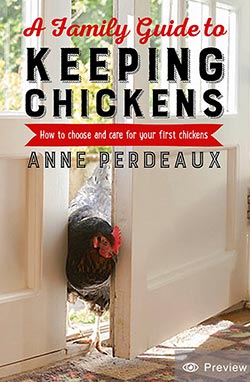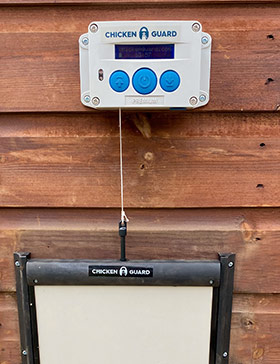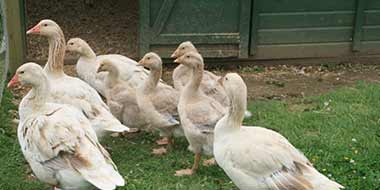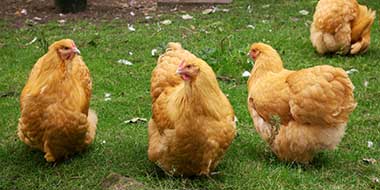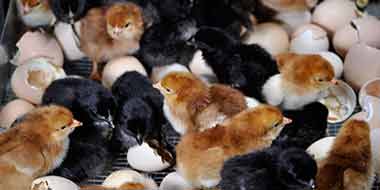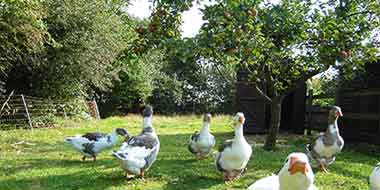
Anne asks the question we should have all asked before buying our chickens: What do you do with chickens when you go on holiday? Chickens and holidays don’t always go together, so here are some tips to help you get away.
It’s not the chickens that need a holiday but their hard-pressed owners. The only problem is – chickens and holidays can be difficult: who will look after the chickens?
Of course, this should have been given some consideration before buying chickens in the first place, but life isn’t always so well organised, and sometimes circumstances change. In any case, it’s important to make sure your chickens are properly cared for when you are away from home, even if it’s only for a couple of nights.
Automatic equipment
It’s sometimes suggested that you can leave chickens for a few days with automatic chicken doors, feeders and drinkers. Although these appliances are useful, daily (preferably twice daily) checks are still essential – for the following reasons:
- If the equipment fails, the chickens could be shut in their house all day, left vulnerable at night, or be deprived of food and water.
- If hens are laying, eggs should be collected at least once a day to avoid encouraging broodiness or egg-eating - a difficult habit to break.
- A chicken could become ill or injured. Chickens are good at hiding illness, and can look perfectly healthy one day only to be at death’s door the next. Sick birds are often picked on by the flock, sometimes with fatal results. Apart from the unnecessary suffering this would cause, the owner could return to a very grisly sight.
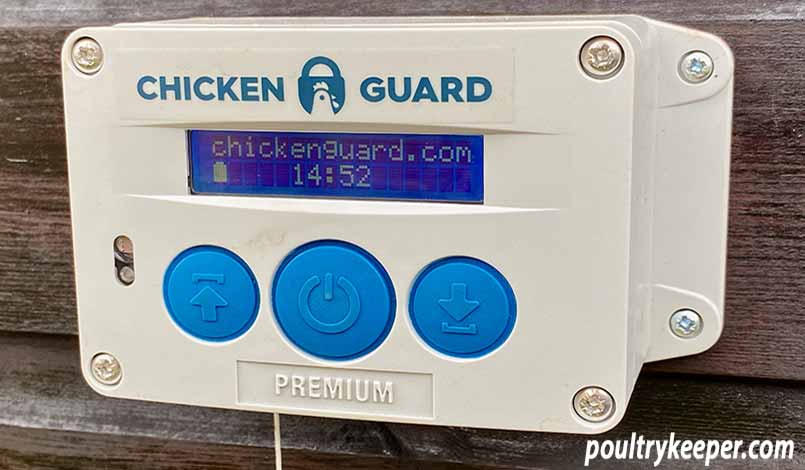
Leaving chickens unattended could actually result in charge of neglect – especially if something does go wrong.
Organising a chicken-sitter
Chickens dislike change, so it’s better if you can find a responsible person to take care of them in their own surroundings. If you have a large flock, this is also likely to be the only viable option. Here are some ideas:
Ask a neighbour
If you are lucky enough to have a friendly and responsible neighbour who happens to love chickens, holidays should be no problem! Make sure the neighbour knows what to do and is prepared to give your chickens the appropriate care. Don’t forget to be properly grateful and to bring back a thoughtful gift from your travels.
Make a reciprocal arrangement
With so many people keeping chickens now, it may be possible to find a like-minded person nearby. You might even be able to organise an entire circle of chicken-sitters in your neighbourhood. You could post a message about chickens and holidays on our poultry forum- poultrykeeperforum.com, to see if there is someone near you who might be prepared for you to help one another out.
Pay someone to help out
A local youngster (or oldster!) may be happy to earn a few pounds looking after your flock when you are away. Unless you know the person well, it’s a good idea to ask for references as they will have access to your property when it is vacant.
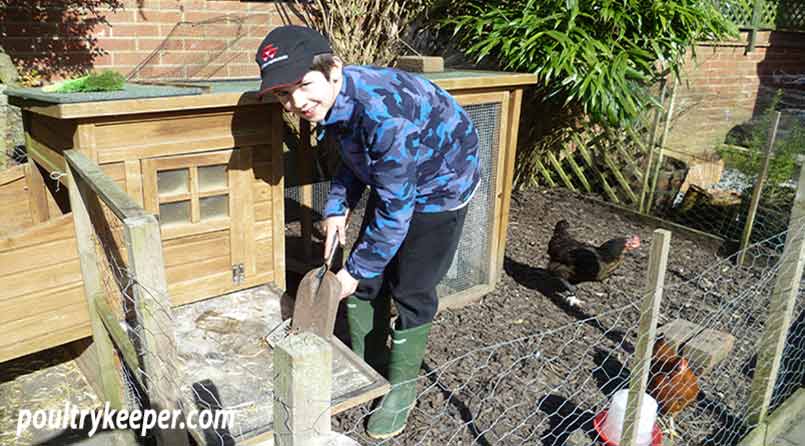
Employ a professional pet-sitter
Pet-sitters will either call your home to attend to your animals or even live-in if required (this can be useful if you don’t like leaving your house unoccupied). Look for adverts in magazines, the vet’s surgery, animal feed stores or online. Remember to check references thoroughly and to confirm that your pet-sitter has some experience of caring for chickens.
Relocating the chickens
If you have only a few chickens and nobody nearby to look after them, you could consider one of these options:
Take them to friends or family
It may be possible to move a small coop plus its occupants to another garden if this is more convenient. Make sure your friend or relative understands what is involved in having chickens to stay and remember that there may be new hazards or predators in an unfamiliar garden.
Automatic
Door Opener
& Closer
The most likely time for predators like foxes to visit is at night, so your chickens must be locked up safely from dusk until dawn.
If you are worried about being at home in time to lock up your chickens, then the ChickenGuard automatic chicken door might be the answer?
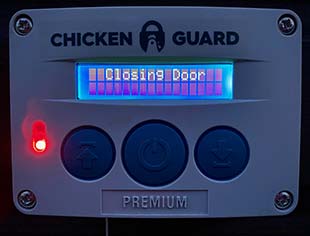
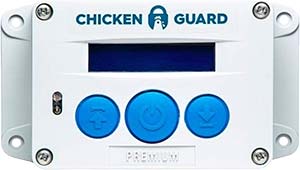
Chicken boarding
Chicken boarding establishments are now becoming widespread, and an internet search may find one in your area. Many of them provide a coop and run (some may require you to bring your own). Before arriving with your chickens, you should visit the premises to ensure that everything is satisfactory. High standards of cleanliness are essential: coops should be thoroughly disinfected after each set of occupants has left and then relocated to fresh ground. Check that security is adequate, and the chickens’ accommodation is well-maintained. Look at the chickens who are currently staying there – do they seem happy and healthy?
Take your chickens with you!
If you are renting a country cottage within reasonable driving distance, it may be possible to pack up your chickens and coop as well. Check with the property owner first, and try to find out about possible local predators. There may be new dangers in an unknown area, so be wary about letting chickens out to free-range.
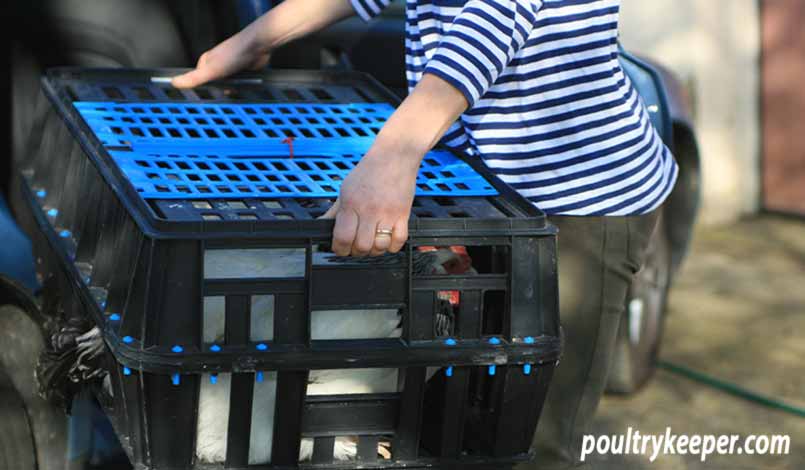
Tips on moving chickens
Change and travel are stressful for chickens, and they quickly succumb to overheating, so try to move them at night and keep their journey as short as possible.
Transport them in a chicken crate, pet carrier or strong cardboard boxes. Cardboard generates warmth, so it’s not the best choice in summer. Remember to make plenty of large air-holes and use string to tie the boxes shut securely – chickens are stronger than they look!
Avoid overcrowding the birds. They should have enough room to stand up and turn round.
Spread a layer of bedding in the bottom of the boxes. You must provide the birds with food and water if travelling for more than eight hours – but in warm weather, you should offer a drink more frequently than this.
Placing the boxes on the back seat rather than in the boot allows circulation of air, and you will be able to keep an eye on the temperature. Never leave chickens in a parked car on a warm day.
Apple cider vinegar in the chickens’ drinking water will help them deal with the stress of the move over the next few days.
Before you leave
When someone else is looking after your chickens, try to make the job as easy and trouble-free as possible. After all, you may wish to use their services again!
Check that your chicken-housing is in good repair, and install new batteries in any automatic doors. Make sure the run is secure, and if you have electric fencing see that it is functioning properly. Have a look at your feeders and drinkers, too – are they adequate and easy to fill? Leave more than enough feed, plus extra bedding and cleaning-out tools if necessary.
Verbal instructions can easily be forgotten or misheard, so write them down for your chicken-sitter, together with any information they may need about the individual peculiarities of your hens. Include the phone number of your vet, and make sure your sitter knows what to do or who to contact in an emergency. You could also add any sources of reference you regularly use (such as this website)!
With your chickens sorted out, you can now pack your bags and relax. Have a good holiday!

A Family
Guide to
Keeping Chickens
Anne’s book is a full colour, practical book which is ideal for beginners.
Even someone who has never kept animals before should be able to follow the clear, detailed guidance that is given.
It includes planning for your first chickens, understanding their behaviour, choosing suitable housing as well as chickens, equipment you will need, and routine care. Protecting against predators, dealing with parasites and ailments, broody hens and much more.
